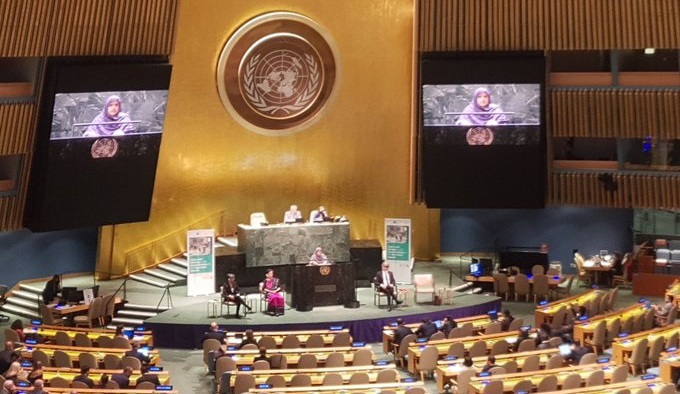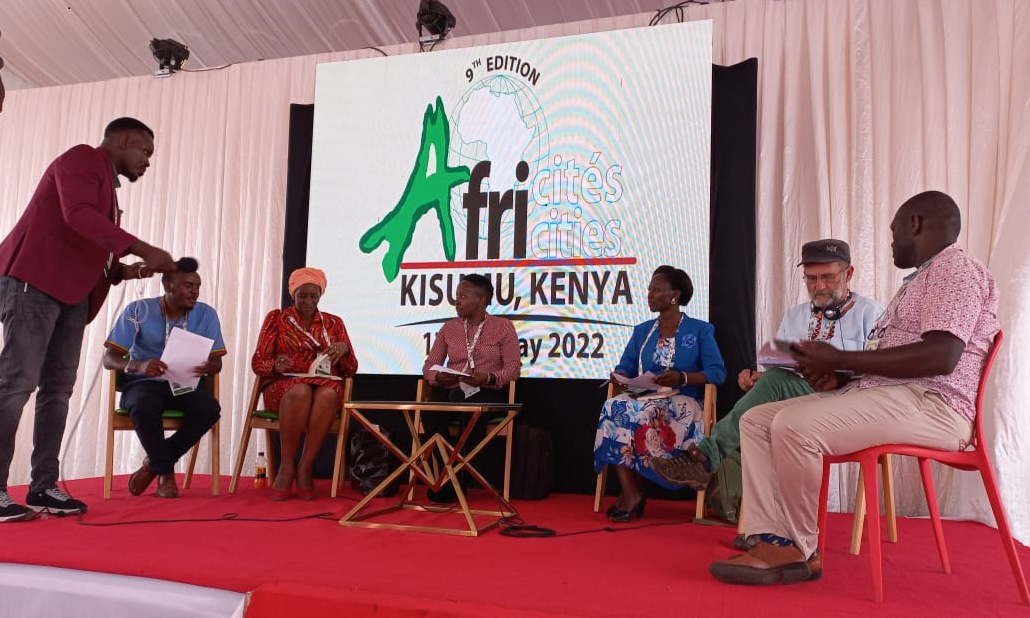The Special Rapporteur on violence against women, its causes and consequences,Yakin Ertürk, and the Special Rapporteur on adequate housing, Miloon Kothari, issued the following statement on the occasion of International Women’s Day, 8 March:
Today, important decisions that shape and determine the lives of individual women and men are made in many places: in families and communities, in businesses and civil society organisations, and in political structures at the international, national and local level. While, on a global scale, this process is still dominated by men, women are continuing their struggle for equal access to the channels of formal and informal decision-making worldwide.
Women are seizing opportunities to educate and empower themselves laying the basis to challenge patriarchal decision-making structures that constrain their active participation in decision making in all spheres of life. At the grass roots level, they have always made major contributions, maintaining family networks and knitting communities together. They are also recognised as capable professionals in the world of business and science. In addition, women are prominent players in civil society. Women, as activists, continue to have a decisive role in shaping the global human rights agenda. It is now firmly and widely recognized that women’s rights are human rights. As such, women’s rights are not a matter of charity or even justice but an entitlement.
Women are also increasingly emerging in the political arena. In Rwanda, for example, women now make up 48.8 per cent of the members of the Chamber of Deputies (compared to 16.4 per cent of parliamentarians worldwide). Ellen Johnson-Sirleaf was just elected President of Liberia – the first woman elected head of state in Africa. This week, Michelle Bachelet will assume the Presidency in Chile, and for the first time ever, a woman, Angela Merkel, heads a German government. Moreover, there are encouraging reports of women across the world winning elections at local and municipal levels. A full integration of women into political decision-making is not only the mark of a truly democratic society, but a complementary step to the realization of other essential human rights enshrining gender equality as a central value, including the right to be free from violence and the right to adequate housing, land, property and inheritance.
While there is every reason to celebrate the progress made, we should ensure that women’s advances in decision-making are sustained and irreversible. This is particularly relevant in the context of the emergency response efforts following natural disasters such as the tsunami or the recent earthquake in South Asia. When disaster strikes, the existence and struggle for gender equality is often among the first casualties. Women find themselves not only disproportionately affected but often excluded from meaningful participation in emergency decision-making structures. As a result, the indiscriminate forces of nature typically have a disproportionate negative effect on women’s human rights.
Emergency relief and reconstruction assistance are often still channelled through established patriarchal institutions. Consequentially, fundamental rights and basic needs of women are often neglected and emergency supplies, including shelter, sometimes fail to reach women. Food aid is distributed on a “head-of family” basis and women – including young girls left in charge of orphaned siblings – are not recognized as such. Temporary shelters are built that fail to ensure privacy and physical safety thereby exposing women to sexual and other forms of violence – a fact that illustrates once again the close nexus between violence against women and the lack of adequate housing. It has also become common practice that women are not given equal rights to homes in resettlement areas with the preference for titles going to men. In addition, women are often not provided information on plans for rehabilitation nor are they adequately represented in the decision-making bodies identifying reconstruction priorities. Thereby, they find themselves excluded from decisions that will shape their communities for decades to come.
On the occasion of International Women’s Day 2006, we wish to underline that emergency response efforts have to take into account the particular and specialized needs and rights of women and must be based on international human rights standards. We firmly believe that this can only be achieved by striving for the equal representation of women and men at all levels of decision-making. Regardless of the circumstances, the inclusion of women in decision-making must always be a priority and never a mere afterthought.
Source: UNHCHR


